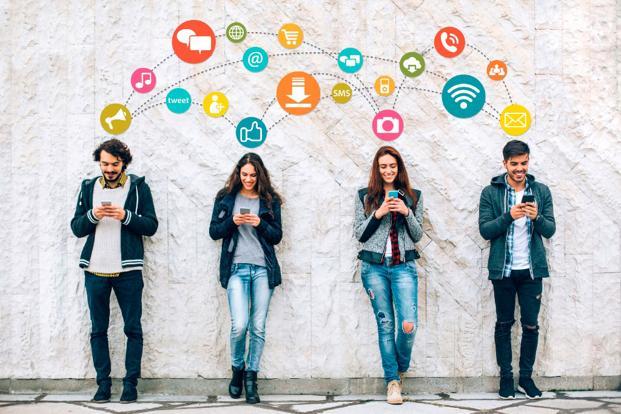Brainwashed by social media
February 26, 2018
Have you found yourself in a situation where you are trying to concentrate on something important but you keep getting distracted by Instagram or Facebook?
You are too busy staring at your phone or swiping endlessly, to be productive. Your work sits unattended, staring back at you.
Smartphones are common and practical.
From planning a friend’s birthday party to the communication of ideas for new group projects, everything is done via smartphones.
A person is basically disconnected from the entire world if they do not have a smartphone.
On the top of the list of things we do on our smartphones is social media.
Research shows that 98 percent of college students use social media. They spend two hours every day on average, swiping, chatting or checking news feeds.
It is obvious that social media is a big part of modern life.
The question is: Are we critically engaged with social media? Thought should definitely be put into something we all do so often.
Students need to be dynamic and productive to succeed. Social media has clearly hindered this process.
We should at least evaluate our productivity when online. Research from the U.K. shows that social sites including Twitter, Facebook, Snapchat and Instagram have net-negative effects on human health.
YouTube was the only site found to have positive effects.
Is the use of these sites wrong? Should we stop using them altogether? I don’t think so.
Psychologists like to look at social media as a necessary evil. Social media is a place where our idealized self is put up for judgement.
Our rewards are the “likes and love reactions,” also called emotional currency. While this system has helped some people, it also has deeper effects on the mental health of others.
People are willing to do almost anything for that little bit of dopamine they feel after each like, view and share online.
The tide pods challenge is a perfect example.
We are now ready to film ourselves ingesting poison just to put it online.
Psychologists have also discussed how notifications can be considered as rewards for our emotional investment in social media.
Sometimes, when we do not get rewarded, we become more engaged. This overuse causes lack of sleep.
The problem with social media is that we do not realize the effects it has on us, or we deny there are any.
Marketing experts at social media companies have made the sites a perfect place for us to get addicted without us even realizing it.
According to Cornell University’s Steven Strogatz, social media sites make it difficult for us to differentiate between the relationships we have in the real world and the casual relationships formed through social media.
Most of us who use social media would deny we have a problem with time-management on different platforms. When we deny problems, solutions are harder to find.
Some of us may not be blindly following the “rewards” online, but that doesn’t mean the problem does not exist.
The pill of self-realization is always bitter.
Before you check your phone for notifications and likes, try to analyze the effect they have on you. Are you productive online?
At this point, we can’t just boycott going online.
But, we can definitely reduce the time we spend online and strive for productivity whenever we are.



